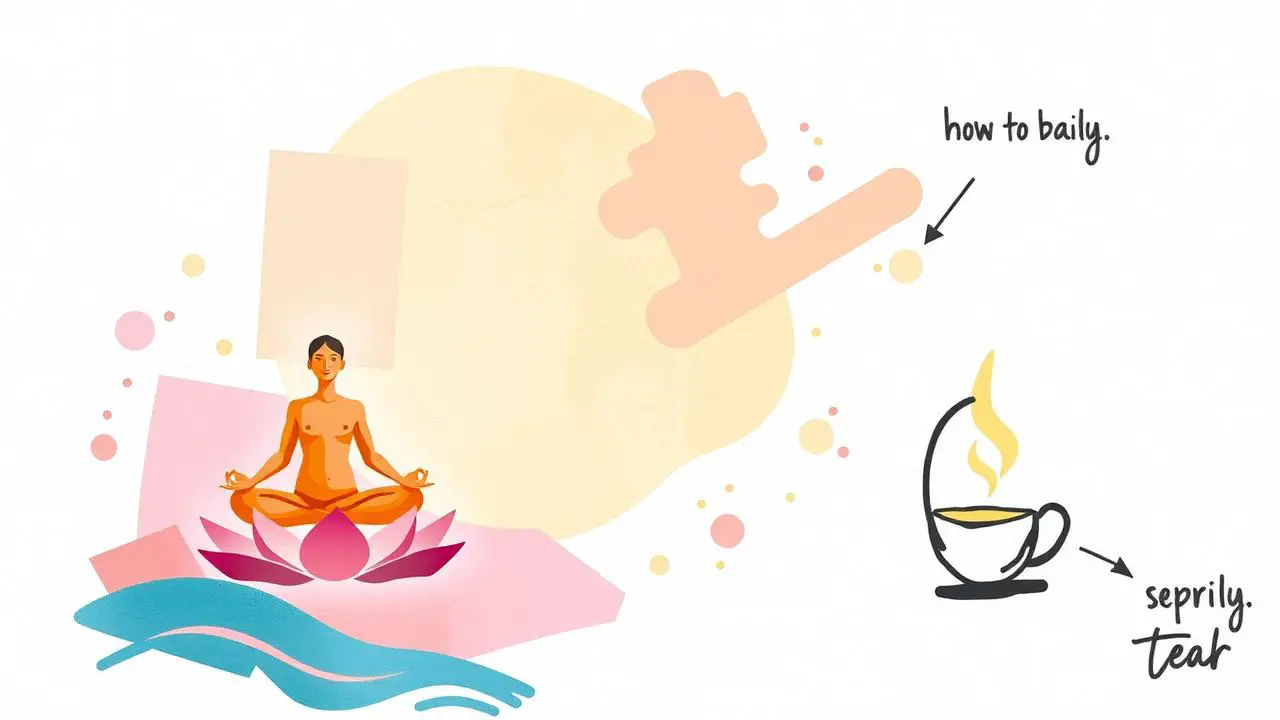Have you ever wondered why 95% of people who practice yoga also incorporate meditation into their routine? The relationship between yoga and meditation runs deep, and understanding the significance of meditation in yoga can greatly enhance your practice.
Meditation is an important practice in yoga as it helps to quiet the mind, reduce stress, increase self-awareness, and improve overall mental and emotional well-being. It allows us to connect with our inner selves, bring focus to the present moment, and cultivate a sense of inner peace and calm. Meditation is seen as a key component in achieving the ultimate goal of yoga, which is union of the body, mind, and spirit.
By exploring the interconnectedness of mind and body, uncovering historical roots, and delving into the transformative effects on mental and emotional well-being, you’ll gain a deeper appreciation for the crucial role meditation plays in the practice of yoga.
Key Takeaways
- Meditation has been an integral part of yoga for thousands of years and is crucial for self-realization and inner peace.
- The mind-body connection is at the core of yoga and meditation practices, nurturing mental well-being and promoting balance.
- Yoga enhances spiritual awareness through mindfulness, self-reflection, and exploring spiritual practices like meditation and chanting.
- Integrating meditation into yoga practice helps manage stress and anxiety by creating inner calm and regulating the body’s stress response.
Historical Roots of Meditation in Yoga
Understanding the historical roots of meditation in yoga provides valuable insight into the origins and development of these ancient practices. The yoga tradition dates back thousands of years, originating in ancient India. The earliest records of meditation as a part of yoga can be found in the Vedas, the oldest sacred texts of Hinduism, which were written around 1500 BCE. Meditation was considered a crucial component of the yogic path, leading practitioners to a state of self-realization and inner peace.
Ancient yogis used meditation as a means to understand the mind and achieve spiritual enlightenment. The practice of meditation was integrated into the broader framework of yoga, which aimed to harmonize the body, mind, and spirit. Over time, various forms of meditation were developed within the yoga tradition, each with its own techniques and goals. These ancient practices laid the foundation for the diverse meditation methods used in yoga today.
Connection Between Mind and Body
To truly experience the benefits of yoga, it’s essential to understand the profound connection between your mind and body. The mind-body connection is at the core of yoga and meditation practices. When you engage in yoga, you aren’t just exercising your body; you’re also nurturing your mental well-being. Through mindfulness and breath control, you can cultivate a deep awareness of how your thoughts and emotions affect your physical state. This heightened awareness can lead to a sense of mental clarity and emotional stability that extends beyond your yoga practice and into your daily life.
Understanding the mind-body connection allows you to approach yoga in a way that prioritizes safety and holistic well-being. It means being attentive to the messages your body sends, respecting its limits, and not pushing yourself beyond what feels right. By doing so, you create an environment in which your body can flourish, and your mind can find peace.
The mind-body connection in yoga isn’t just about physical postures; it’s about nurturing a harmonious relationship between your mental and physical self, resulting in a balanced and healthy existence.
Enhancing Spiritual Awareness
As you deepen your yoga practice and strengthen the connection between your mind and body, you may also find that it opens the door to enhancing your spiritual awareness. This deeper spiritual growth can bring about a profound sense of inner peace and fulfillment.
Here are some ways in which yoga can contribute to enhancing your spiritual awareness:
- Mindfulness: Through regular yoga practice, you can cultivate a heightened sense of mindfulness, allowing you to be fully present in the moment and more attuned to the spiritual aspects of life.
- Practical Application: Engaging in mindfulness meditation can help you develop a deeper connection with your inner self and the world around you.
- Connection to Something Greater: Yoga can help you feel more connected to a higher power, the universe, or a sense of oneness, fostering a deeper understanding of your place in the world.
- Practical Application: Exploring different spiritual practices, such as meditation or chanting, can help you tap into this sense of connection.
- Self-Reflection and Introspection: The introspective nature of yoga encourages self-reflection, leading to personal growth and a deeper understanding of your spiritual journey.
- Practical Application: Journaling about your experiences and insights gained during yoga practice can aid in self-reflection and spiritual growth.
Managing Stress and Anxiety
Feeling overwhelmed by stress and anxiety? Let’s explore how integrating meditation into your yoga practice can help you find inner calm and peace.
Stress relief is crucial for your mental health, and meditation is a powerful tool to achieve this. When you engage in meditation during yoga, you create a space for yourself to let go of worries and anxieties. By focusing on your breath and being present in the moment, you can train your mind to let go of the stress that has accumulated throughout the day. This practice allows you to cultivate a sense of inner peace and tranquility that can carry over into your everyday life.
Meditation also helps to regulate the body’s stress response, lowering the levels of cortisol, the stress hormone. This can have a profound impact on your overall well-being, reducing the negative effects of stress on your body and mind.
Cultivating Mindfulness and Presence
Strive for a moment of inner stillness and quiet reflection, allowing your mind to ground itself in the present, as you continue to explore the benefits of meditation within your yoga practice. Cultivating mindfulness and presence is essential in nurturing the mind-body connection and achieving mental clarity.
Here’s how you can achieve this:
- Deepening Awareness: By practicing mindfulness, you can deepen your awareness of the present moment, allowing you to fully engage with your yoga practice and daily life. This heightened awareness fosters a deeper understanding of your body’s needs and signals, promoting a sense of safety and well-being.
- Embracing Stillness: Cultivating presence allows you to embrace stillness in both your body and mind. Through meditation, you can create a space for tranquility, reducing stress and anxiety while promoting a sense of calm and inner peace.
- Enhancing Focus: Mindfulness and presence enhance your ability to focus, both in your yoga practice and in your daily activities. This heightened focus can lead to improved performance, a greater sense of security, and a more profound connection with yourself and others.




